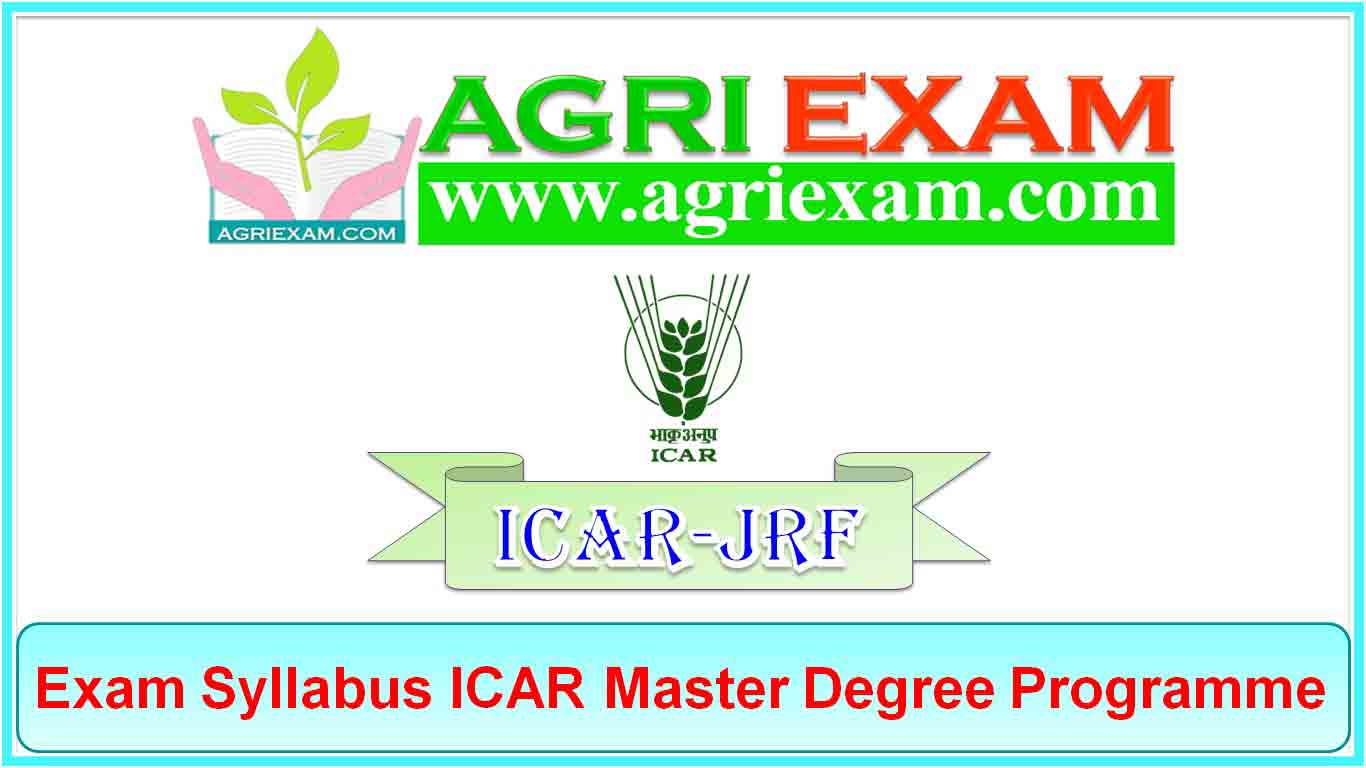MAJOR SUBJECT GROUP – DAIRY SCIENCE

ICAR JRF Syllabus DAIRY SCIENCE
Sub-Subjects
17.1: Dairy Microbiology
17.2: Dairy Chemistry
Unit-I: Chemical composition of various food of plant and animal origin, structure and functions of food constituents, additives, preservatives, flavours and antioxidants, composition and physico-chemical and nutritional properties of milk and colostrum, chemistry of milk, constituents, nutrients and milk products. Test for the quality of milk, butter, ghee, milk powder etc., adulterants, neutralizers and preservatives, their detection, heat stability of milk.
Unit II: Introduction to dairy microbiology – Milk production hygiene and critical risk factors affecting microbiological quality on-farm; Microorganisms associated with milk and their classification based on growth temperature– psychrotrophs, mesophiles, thermodurics and thermophiles; Microbial metabolites and their role in spoilages – souring, curdling, gassiness, ropiness, proteolysis, lipolysis, abnormal flavour and colour; Antimicrobial systems in raw milk; Microbiological grading of raw milk; Microflora of mastitic milk and its importance in dairy industry; Food poisoning, food infections, toxi-infections and other milk borne diseases and their control.
Unit-III: Composition and chemistry of cream, butter, ghee, ice-cream, cheese, condensed and dried milks, infant food, spoilage of ghee and use of antioxidants, chemistry of milk fermentation, chemistry of rennin coagulation of milk and changes occurring during ripening of cheese, physico-chemical changes in the manufacture and storage of milk powder, lactose, crystallization and its significance, physicochemical changes during the manufacture of indigenous milk products, quality standards of dairy products.
Unit IV: Bacteriological aspects of milk processing – Thermization, pasteurization, boiling, sterilization, UHT, bactofugation, and membrane filtration; Microbiological quality of cream, butter, ice-cream, concentrated dairy products, dried milks, infants milk foods, indigenous dairy products; Factors affecting the microbiological quality of these products during production, processing, handling, storage and distribution; Enumeration, isolation and identification of conventional and emerging dairy pathogens, detection of microbial toxins, drug residues in milk and their public health importance; Microbial defects associated with dairy products and their control; Microbiology of dairy starters; Classification, genetic aspects and carbohydrate metabolism of Lactic Acid Bacteria (LAB); Preservation, propagation and quality control of dairy starters and their inhibition by antibiotic residues, detergents, sanitizers, bacteriophages etc.; Microbiology of fermented milks, cheeses and application of probiotic concept in dahi, yoghurt, Kefir, Kumiss, Bulgarian milk, cultured buttermilk, leben, yakult, cheddar and processed cheese; Dairy plant hygiene and sanitation – Microbiology of air, water, equipments, packaging materials, personnel, disposal of dairy waste; Microbiological standards for milk and milk products – PFA, BIS, Codex/ ISO standards (ISO 9001: 2001/ISO 22000:2005).
ICAR JRF Syllabus DAIRY SCIENCE